 About GamePeople
About GamePeople
Subscribe to the Board Gamer column:![]() RSS or
RSS or
![]() Newsletter.
Newsletter.
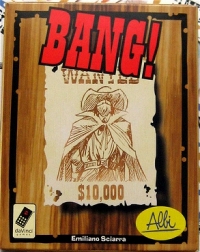
Format:
Board Game
Genre:
Strategy
Style:
Physical
Competitive
Cooperative
Turnbased
Further reading:
Mafia
Bang! (iPhone)
Buy/Support:
Support Ed, click to buy via us...
Other GamePeople columnists have reviewed this from their perspective - huh?:
Family Gamer (BOARD)
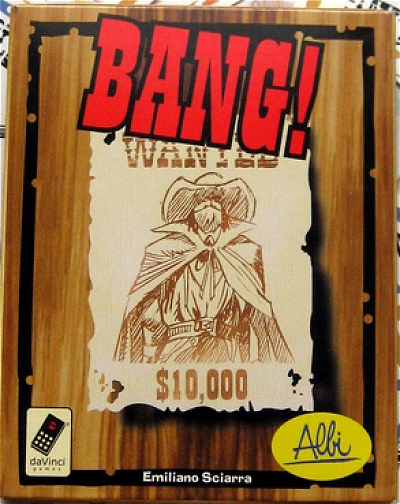
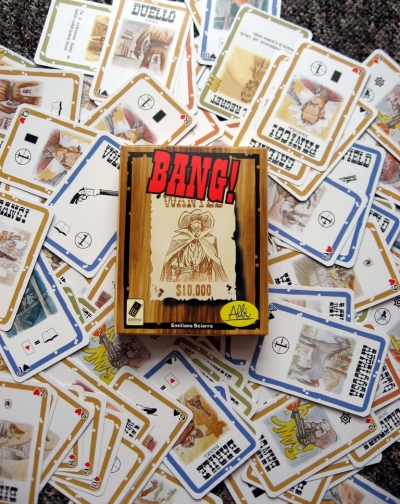
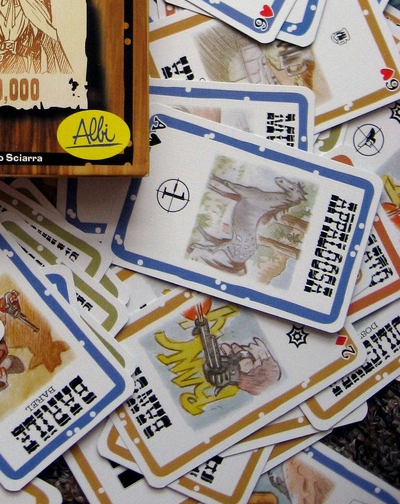
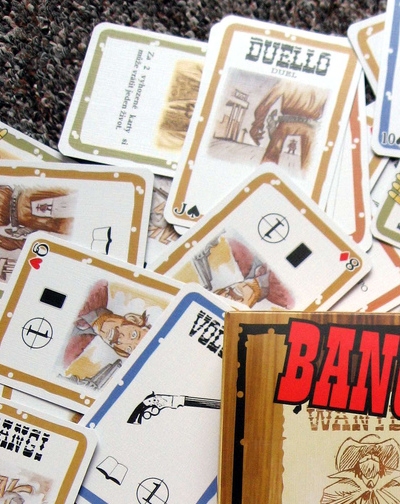

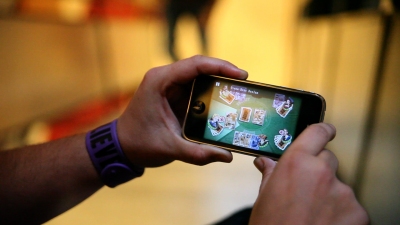
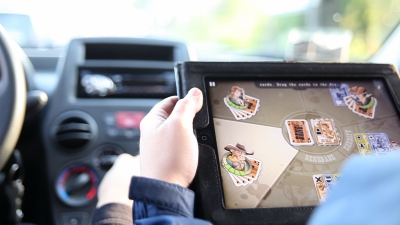
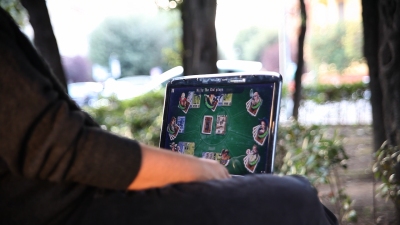

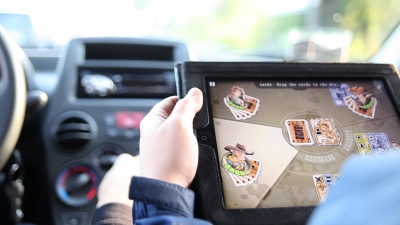



Bang! is a strategic card game for up to seven people where players race to kill each other and work out which role they have each been assigned. Like the popular Mafia (Werewolf/Assassin) party games the intrigue about who is playing which role is as much fun as winning or losing.
Bang! is a little more complex (and perhaps less flexible) than those classic Mafia parlor games, but the structure it brings to the table (ed: so to speak?) makes it a more accessible game for a wider audience. It also creates a strong sense of the western theme with the different roles, character and abilities.
Bang! is a spaghetti western themed card game where each player is randomly assigned a character that determines their objective for each round. This creates a web of competing interests - the Outlaws hunt the Sheriff; the Sheriff hunts the Outlaws; the Renegade takes one side or the other and the Deputy protects the Sheriff.
The novelty here though is that nobody knows what each player's role is - except that of the Sheriff. As play proceeds, by drawing and playing cards to attack or defend against other players, everyone tries to identify who is playing each role from each other's behaviour.
As there is no actual board to setup, getting started is quite quick although you do need at least four players. The general concept of a parlor game needs to be understood as well as some specifics about the different types of cards.
Each player is dealt a random character card (face up) and a role card (face down) - this determines who they are (and their special abilities) as well as their mission for this round. The game then starts with players drawing and playing cards in turn.
Once you have set things up and been allocated characters and role, Bang! proceeds in clockwise order starting with the Sheriff. Each player's turn is divided into three phases, drawing two cards, playing cards to attack other players and defend themselves and finally discarding excess cards at the end of their go.
To shoot at another player during the second phase a "Bang!" card is required. Players can only shoot those next to them unless a weapon upgrade is in play that increases their range. Defending players can avoid being shot by playing a "Missed" card.
Other cards include "Beer" that restores a one block of life, a "Whiskey" card that restores two blocks of life and a "Jail" card that puts another player behind bars. Most of the cards are pretty easy to understand and have symbols that describe the card's effect.
The general concept can be understood by children as young as seven, although the finer points may pass them by. There is a lot of simple fun in the different character abilities and secrecy of the assign roles. As with other parlor games, older players can employ all manner of psychological strategies to try and identify who is player each role - bluffing and double bluffing their opponents.
Each round can last about fifteen minutes - depending on how much strategising each player does on their go. A game can combine as many rounds as is convenient in the available time.
In addition to the basic set of cards there are expansion sets that add new abilities, missions and weapons into the game:
Wild West Show for instance introduces characters that are based on iconic western movie actors as well as new cards.
Face Off is an expansion that adds a board to create a two player version of the game using the original Bang! cards.
A Fistful Of Cards adds fifteen new scenarios that can be mixed with the High Noon expansion.
High Noon adds thirteen scenarios for the Sheriff, revealed at the start of each of his turns.
Dodge City adds fifteen new characters and 40 new cards as well as eight new role cards to accommodate up to eight people to play.
There is also now a Bang! (iPhone) game that enables players to compete across the different platforms (iPhone/iPad/PC), although it doesn't interact with the physical card game.
Bang! and its expansions offer a more accessible version of the who done it style parlor games. The strong western theme and clear round structure make it more fun for younger players. Perhaps one down side for smaller families is that you need at least four people to play (unless you go for the iPhone version that supports computer players) Those more experienced with the genre will benefit from the additional intricacies introduced by the range of expansions.



Ed Stephens writes the Board Gamer column.
"In a world of ever advancing technology, where gaming is often synonymous with consoles, I'm here to take a different approach and look at board games."
Here are the games I've been playing recently:
© GamePeople 2006-13 | Contact | Huh?

|
Family Video Game Age Ratings | Home | About | Radio shows | Columnists | Competitions | Contact
With so many different perspectives it can be hard to know where to start - a little like walking into a crowded pub. Sorry about that. But so far we've not found a way to streamline our review output - there's basically too much of it. So, rather than dilute things for newcomers we have decided to live with the hubbub while helping new readers find the columnists they will enjoy. |
Our columnists each focus on a particular perspective and fall into one of the following types of gamers:
|